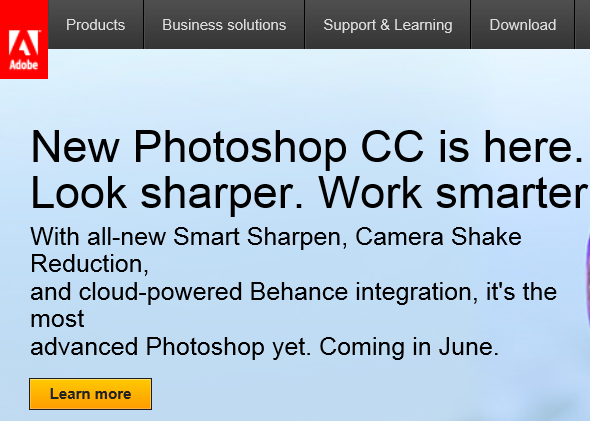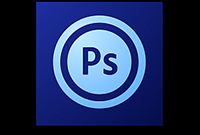From The Blog
-
ConnectWise Slash and Grab Flaw Once Again Shows the Value of Input Validation We talk to Huntress About its Impact
Written by Sean KalinichAlthough the news of the infamous ConnectWise flaw which allowed for the creation of admin accounts is a bit cold, it still is one that…Written on Tuesday, 19 March 2024 12:44 in Security Talk Read 691 times Read more...
-
Social Manipulation as a Service – When the Bots on Twitter get their Check marks
Written by Sean KalinichWhen I started DecryptedTech it was to counter all the crap marketing I saw from component makers. I wanted to prove people with a clean…Written on Monday, 04 March 2024 16:17 in Editorials Read 1571 times Read more...
-
To Release or not to Release a PoC or OST That is the Question
Written by Sean KalinichThere is (and always has been) a debate about the ethics and impact of the release of Proof-of-Concept Exploit for an identified vulnerability and Open-Source…Written on Monday, 26 February 2024 13:05 in Security Talk Read 1105 times Read more...
-
There was an Important Lesson Learned in the LockBit Takedown and it was Not About Threat Groups
Written by Sean KalinichIn what could be called a fantastic move, global law enforcement agencies attacked and took down LockBit’s infrastructure. The day of the event was filled…Written on Thursday, 22 February 2024 12:20 in Security Talk Read 1075 times Read more...
-
NetSPI’s Offensive Security Offering Leverages Subject Matter Experts to Enhance Pen Testing
Written by Sean KalinichBlack Hat 2023 Las Vegas. The term offensive security has always been an interesting one for me. On the surface is brings to mind reaching…Written on Tuesday, 12 September 2023 17:05 in Security Talk Read 2125 times Read more...
-
Black Kite Looks to Offer a Better View of Risk in a Rapidly Changing Threat Landscape
Written by Sean KalinichBlack Hat 2023 – Las Vegas. Risk is an interesting subject and has many different meanings to many different people. For the most part Risk…Written on Tuesday, 12 September 2023 14:56 in Security Talk Read 1844 times Read more...
-
Microsoft Finally Reveals how they Believe a Consumer Signing Key was Stollen
Written by Sean KalinichIn May of 2023 a few sensitive accounts reported to Microsoft that their environments appeared to be compromised. Due to the nature of these accounts,…Written on Thursday, 07 September 2023 14:40 in Security Talk Read 2115 times Read more...
-
Mandiant Releases a Detailed Look at the Campaign Targeting Barracuda Email Security Gateways, I Take a Look at What this all Might Mean
Written by Sean KalinichThe recent attack that leveraged a 0-Day vulnerability to compromise a number of Barracuda Email Security Gateway appliances (physical and virtual, but not cloud) was…Written on Wednesday, 30 August 2023 16:09 in Security Talk Read 2092 times Read more...
-
Threat Groups Return to Targeting Developers in Recent Software Supply Chain Attacks
Written by Sean KalinichThere is a topic of conversation that really needs to be talked about in the open. It is the danger of developer systems (personal and…Written on Wednesday, 30 August 2023 13:29 in Security Talk Read 1882 times Read more...
Recent Comments
- Sean, this is a fantastic review of a beautiful game. I do agree with you… Written by Jacob 2023-05-19 14:17:50 Jedi Survivor – The Quick, Dirty, and Limited Spoilers Review
- Great post. Very interesting read but is the reality we are currently facing. Written by JP 2023-05-03 02:33:53 The Dangers of AI; I Think I Have Seen this Movie Before
- I was wondering if you have tested the microphone audio frequency for the Asus HS-1000W? Written by Maciej 2020-12-18 14:09:33 Asus HS-1000W wireless headset impresses us in the lab
- Thanks for review. I appreciate hearing from a real pro as opposed to the blogger… Written by Keith 2019-06-18 04:22:36 The Red Hydrogen One, Possibly One of the Most “misunderstood” Phones Out
- Have yet to see the real impact but in the consumer segment, ryzen series are… Written by sushant 2018-12-23 10:12:12 AMD’s 11-year journey to relevance gets an epic finish.
Most Read
- Microsoft Fail - Start Button Back in Windows 8.1 But No Start Menu Written on Thursday, 30 May 2013 15:33 in News Be the first to comment! Read 116519 times Read more...
- We take a look at the NETGEAR ProSafe WNDAP360 Dual-Band Wireless Access Point Written on Saturday, 07 April 2012 00:17 in Pro Storage and Networking Be the first to comment! Read 87454 times Read more...
- Synology DS1512+ Five-Bay NAS Performance Review Written on Tuesday, 12 June 2012 20:31 in Pro Storage and Networking Be the first to comment! Read 82013 times Read more...
- Gigabyte G1.Sniper M3 Design And Feature Review Written on Sunday, 19 August 2012 22:35 in Enthusiast Motherboards Be the first to comment! Read 80321 times Read more...
- The Asus P8Z77-M Pro Brings Exceptional Performance and Value to the Lab Written on Monday, 23 April 2012 13:02 in Consumer Motherboards Be the first to comment! Read 70970 times Read more...
Displaying items by tag: Adobe
Flash is certainly on its way out, but will that really fix much?
Last week Google announced that they will no longer be accepting ads that feature Flash. This new should really come as no surprise as Flash (and its spirit brother Java) have taken a beating on the security front for years. Abobe and Oracle have been unable to keep the bad guys from running rampant with their code. Of course the change will not take place overnight so everyone has the chance to swap out that old and insecure Flash for the new and (insecure) HTML5.
After multiple 0-days, many call for Flash to go away
After three spate 0-day vulnerabilities are found in your product you can pretty much expect the market to call for you go away. This is the situation that Adobe is in right now. After fighting to their little slice of dominance in the computing industry Adobe’s Flash is arguably one of the most commonly used APIs to rendering rich content. This has made them a rather large target for a number of years… well this and the fact that the Flash development team has made some rather poor choices when it comes to their application.
New Flaw found in Flash Player, yes another one.
Although it will not come as a surprise, there seems to be yet another bug in Adobe’s flash player that allows for an attacker to potentially take control of a system by forcing a crash of the application. According to TrendMicro, CVE 2015-5123 is a critical bug in the latest version of Flash player for Linux, Windows, and OSX operating systems. Adobe has already released a customer advisory stating they are already aware of this flaw being exploited in the wild.
Adobe Breach Now Confirmed to Have Affected 38 Million Users
Recently Adobe had a security breach where they claimed that roughly 3 million user accounts were affected. At the time they said that some accounts even had encrypted credit/debit card information stolen. When the announcement came out Adobe sent out a mass e-mail informing the people affected that their accounts were compromised. The breach was a blow to Adobe’s Creative Cloud service which moves their software from a onetime purchase to a monthly subscription.
Did Adobe suffer a second breach?
On October 4th Adobe was forced to send out almost three million emails with the unfortunate news that their network had been attacked, breached and data stolen. The data from that theft included account IDs as well as encrypted passwords and credit/debit card information and even source code for Adobe products. The attack happened not all that long after Adobe pushed their users to a subscription based license for their products. Once a large number of people had joined the Creative Cloud service Adobe was an even more attractive target and due to their history or ignoring security the attackers were able to get in and grab what they wanted.
Adobe Loses 2.9Million User's Data Along with Source Code to Hackers ** Update**
 |
The threat of a data breach is one that every company faces and it is also an eventuality that they all know can happen at any time. The number of daily attempt to penetrate corporate security is staggering as is the number of successful attack where at least some data is taken. It is for this reason that we still a confused when companies want to move to a cloud based or subscription style software agreement. Once all of that billing information is stored in a single spot (even multiple data centers) it becomes a very big target. Adobe has found that out the hard way as they are now reporting a breach that lost the information for approximately 2.9 Million users and source code for Cold Fusion and Acrobat.
Adobe acquires Neolane
 |
Adobe Systems has announced that they will pay $600 million to acquire company Neolane, which develops software platform for the management of digital marketing campaigns across multiple platforms.
Adobe Wants to Lock You into the Cloud to Maintain a Revenue Stream
 |
Adobe is jumping on the revenue stream bandwagon and has announced that they will no longer release boxed versions of their creative suite products. Instead they are pulling everything back into their Creative Cloud and forcing users into a subscription service. In other words they are joining Microsoft and a few others in the attempt to make your software turn into a recurring charge instead of a one-time purchase. This new business model seems to be catching on with many larger software developers and we do expect it extend down into game developers in the next few years.
Photoshop for mobile devices
 |
Photoshop is now available to users of mobile phones with Android or iOS operating systems. The new application name is Photoshop Touch, in relation to the version for tablet devices; the interface is changed, while the functionality remains pretty much the same.
Vectors instead of pixels
 |
If you believe the predictions of Philip Willis and John Patterson from the University of Bath in England, the age of pixels, at least in video compression algorithms, is coming to an end. Although the basic unit of raster images that the video consists of are still pixels, it has been known for a long time that there are limitations that arise from them. For example, scaling to different, especially higher resolution, makes image quality turn to crap and increases perceptual artifacts with no gain in quality of information.


